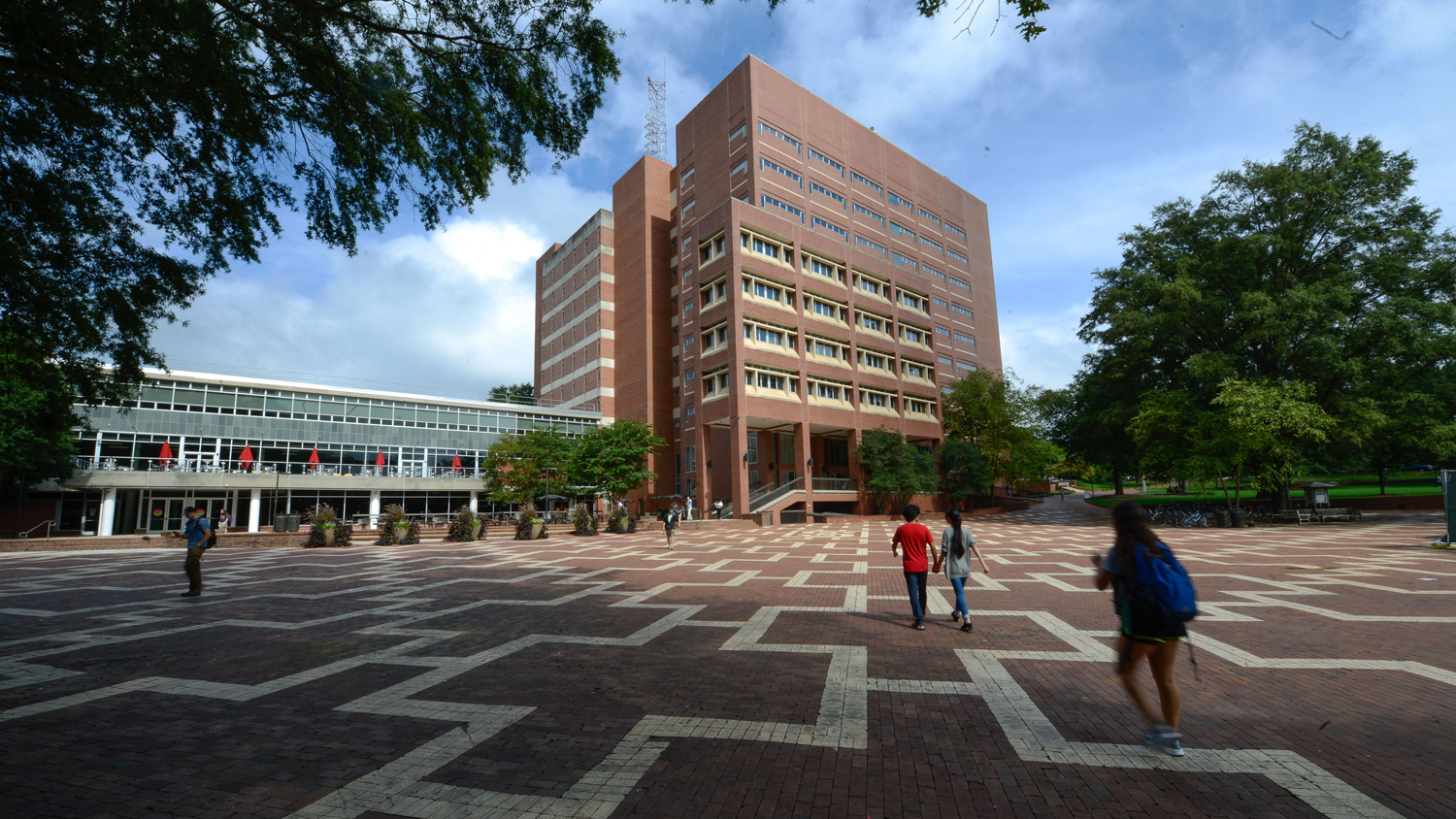
Definitions and Resources
Our resources give the NC State community access to important reporting tools, educational information and on and off-campus support.
Terms and Definitions
The Office for Institutional Equity and Diversity (OIED) and the OIED Impact Response Team (IRT) uses the following definitions to determine the nature of impact-related actions or behaviors. They are consistent with University Policies, Regulations and Rules. To the extent that they conflict, definitions provided in University Policies, Rules, and Regulations govern.
- affected person/group – those indirectly impacted by the behaviors/actions of responsible person(s) or group(s).
- bias incident – any consciously, unconsciously, explicitly or implicitly expressed act that targets individuals or groups based on perceived or actual identity. Additionally, a bias incident refers to single (or ongoing) instances of behavior, action or practice that marginalizes, mocks, demeans, intimidates or threatens individuals or groups based on an actual or perceived membership in protected class. Some but not all bias incidents are also violations of university policy and/or law.
- bias impact – physical, psychological and/or emotional responses to incidents, behaviors, interactions and/or practices that communicate negative or harmful bias. Bias impact can manifest as:
- a diminished sense of self-worth, for those impacted and affected, for an extended period of time;
- distrust between individuals and/or groups, leading to the erosion of a healthy sense of community;
- feeling vulnerable, powerless, helpless, fearful and/or unwelcome;
- psychological distress, including stress, anxiety and/or anger;
- interference with an individual’s ability to work, learn or maintain health relationships;
- poor academic performance;
- a desire to leave or withdraw from the community and/or to decrease participation in social activities and programs;
- feeling the need to retaliate against a member of the group represented by the responsible person(s)/group(s).
[Adapted from Xavier University]
- bullying/intimidation – behaviors or actions intended to frighten, coerce and/or deter someone from action or participation.
- discrimination – unfavorable treatment experienced on the basis of actual or perceived identity or experience.
- exclusion – actions or behaviors that intentionally or unintentionally restrict or prevent participation and/or minimize/omit representation.
- harassment – any unwelcome conduct enacted based on an individual or group’s actual or perceived membership in a protected class that unreasonably interferes with the person’s work or educational performance or creates an intimidating or hostile work or educational environment.
- hate crime – a criminal offense (including damage to property, larceny, simple assault and intimidation) that manifests evidence that the victim was intentionally selected because of the perpetrator’s impact against the victim. Hate crimes must be reported to NC State Police.
- hate speech – speech that offends, threatens or insults an individual or group based on their actual or perceived membership in a protected class.
- impacted party – individuals or groups that are directly harmed by the actions of a responsible person/group.
- microaggressions – brief and common daily verbal, behavioral or environmental indignities, whether intentional or unintentional, with or without awareness, that communicate hostility, negative slights or insults rooted in bias.
- protected class – a group of people who share common characteristics and are protected from discrimination and harassment under federal and state laws and/or university policy. NC State University protects students, faculty and staff from discrimination and harassment based on age (40 or older), color, disability, gender identity, genetic information, national origin, race, religion, sex (including pregnancy), sexual orientation and veteran status.
- responsible persons/groups – individuals or groups whose actions have, regardless of intent, caused harm to, or impact on others and/or the community.
- restorative practices – community-focused processes and exchanges designed to equip individuals and groups to 1) process, and hopefully resolve, interpersonal conflict; and 2) reduce social inequity.
- supporter – an adviser, friend, family member, etc., of either impacted, affected or responsible person(s) that offers assistance, encouragement or other support.
- threat – expression of intention to inflict harm, injury or damage.
- vandalism – engaging in an act that intentionally or recklessly damages, destroys or defaces property of the university or another. (Student Code of Conduct, University Policy 11.35.01)
For a comprehensive list of General Diversity Terminology used by NC State, please visit the Office for Institutional Equity and Diversity website.
University Policies
When impact is reported to the IRT, university policies will be taken into account by the Office for Institutional Equity and Diversity in order to decide on the best course of action. These policies help to inform decision-making and to educate all parties involved on potential outcomes of an impact report.
- Academic Accommodations for Students with Disabilities – REG 02.20.01
- Campus/Workplace Violence Prevention and Management – REG 04.05.02
- Code of Student Conduct – POL 11.35.01
- Discrimination, Harassment and Retaliation Complaint Procedure – REG 04.25.02
- Equal Opportunity and Non-Discrimination Policy – POL 04.25.05
- Equal Opportunity, Title IX and Non-Discrimination Training for Employees – REG 04.25.06
- Faculty and EHRA Non-Faculty Appeals to Board of Trustees – POL01.05.08
- Faculty Grievance and Non-reappointment Review Procedures – REG 05.25.04
- Freedom of Access to Internet Resources – RUL 02.61.03
- Grievance Procedure for Graduate Students – REG 11.40.02
- Mediation Policy and Procedure – POL05.35.01
- Outdoor Assemblies, Events, and Public Addresses – REG 11.55.02
- Political Activities – POL 05.00.04
- Reasonable Accommodations in Employment – REG 05.00.22
- Recognized Student Organizations within DASA: Regulation for Undergraduate Student Leadership – REG 11.55.06
- Sexual Harassment – POL 04.25.05
- Solicitation – REG 07.25.12
- Student Discipline Procedures – REG 11.35.02
- Trespassing on University Property – REG 04.05.01
- University Housing Disciplinary Procedures – RUL 11.31.01
- Use of the NCSU Libraries – RUL 02.61.05
- Use of University Facilities – REG 07.25.11
- UNC Code Section 604 – Appointment, Non-reappointment and Requirements of Notice and Review
- UNC Code Section 607 – Faculty Grievance Committee for Constituent Institutions
- UNC Code Section 610 – Rights of Special Faculty Members
- UNC Policy Manual 101.3.1 – Review of Non-reappointment Decisions under Section 604 of The Code
- UNC Policy Manual 101.3.2 – Grievances Filed Pursuant to Section 607 of the Code
Annual Reports
In keeping with our commitment to comprehensive and transparent communication within the university community, we maintain annual reports of documented impacts for each academic year. These detailed reports and responses, reveal trends and progress made in our response to improving the university community.
NC State Resources
NC State students, faculty and staff may find a comprehensive list of campus resources for reporting and addressing impact. These resources are housed in various campus units, including the Office for Institutional Equity and Diversity (OIED), the Division of Academic and Student Resources (DASA), as well as other units and offices.
- Diversity at NC State
- OIED - ADA - Accessibility at NC State
- OIED - Equal Opportunity and Equity
- OIED - Outreach and Education
- OIED - Diversity and Inclusion
- OIED - Campus Community Centers
- College of Agriculture and Life Sciences
- College of Design
- College of Education
- College of Engineering - Minority Engineering Programs
- College of Engineering - Women in Engineering Program
- College of Engineering - Engineering Research Center
- College of Humanities and Social Sciences
- Poole College of Management
- College of Natural Resources
- College of Sciences
- College of Textiles
- College of Veterinary Medicine
- The Graduate School
- Student Ombuds Services
- Faculty and Staff Ombuds
- Employee Relations (Human Resources)
National Resources
Other colleges and universities around the United States have recognized the gravity of bias on campus and have provided resources to educate the public on how to respond. Equipping others to respond appropriately helps to create a university where students, faculty and staff actively engage with one another to improve our campus culture.
Steps to Intervening in a Bias Act or Bias Crime Inside and Outside the Classroom
Rutgers University – New Brunswick | View Resource
Responding to Derogatory Speech with More Speech / Graffiti and Vandalism
University of Texas – Austin | View Resource



